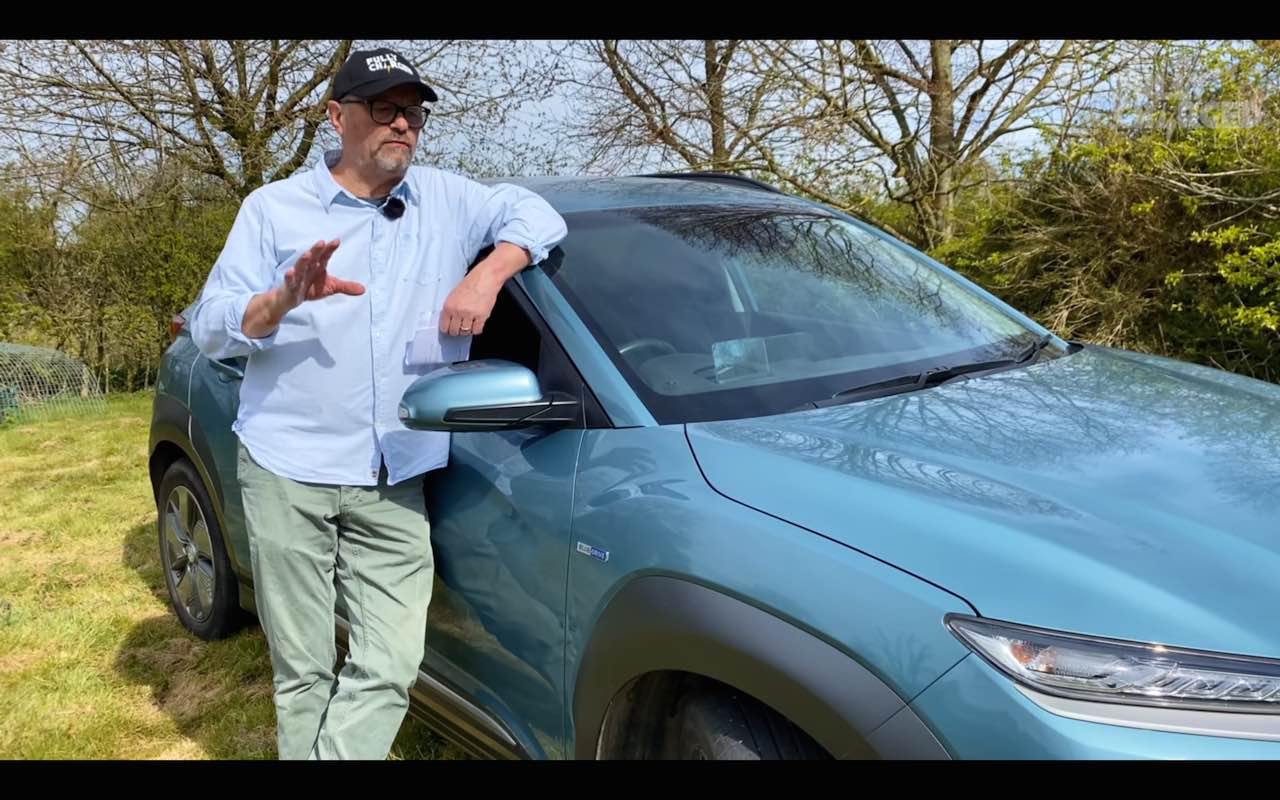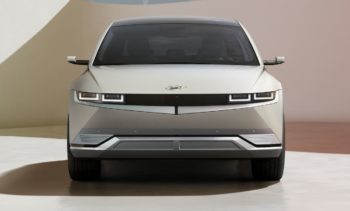While India is just beginning to warm up to electric vehicles, globally EVs found a lot of acceptance in 2019, and one Hyundai Kona Electric driver may never again think of switching to petrol powered vehicles. Englishman Robert Llewellyn from the fullychargedshow on YouTube has had the Hyundai Kona Electric for a long-term review driving the car for over 32,000 km and during this interval, he has revealed that he didn’t spend anything on service cost.
The long-term reviewer found that the Kona Electric returned better range than the Tesla 3’s 525 km. The Kona Electric seen here is powered by a 64 kWh battery with a range of 449 km in the WLTP cycle and the reviewer has said that he was able to achieve a range of 532 km during a road trip. Hyundai recently announced that the 64 kWh Kona Electric has undergone new upgrades and will now return a range of 484 km in a single charge in the WLTP cycle with the same battery capacity. The improved range is being attributed to aerodynamic changes done to the chassis and low-rolling resistance Michelin Primacy 4 tyres. Note that Llewellyn’s Kona is from an earlier batch.
And this is not a one-off case or should not be misconstrued as a manufacturer maintaining the press fleet paying for service charges! In India, Hyundai Kona Electric owner Mr Arun Bhat Saravu from Karnataka paid Rs 0 for the service done at 10,000 km. This is made possible because being a fully electric car, Kona Electric doesn’t require an engine oil change or fuel filter or fluids like coolant, transmission oil etc. Even the brake pads of electric vehicle require less maintenance as it is aided by regenerative braking.
In a recent cold-weather test conducted by the Norwegian Automobile Federation, the Hyundai Kona Electric came out top as the best performing EV, losing just 9 per cent of its charge, beating the likes of VW e-Golf, Audi e-tron and Tesla Model S. The Kona, alongside the VW ID.3, VW ID.4, Kia Imagine, Tesla Model 3, Nissan Leaf and the Renault Zoe would play a major role in driving electrification in the mass market segment up till the end of 2022. In developing markets, Hyundai’s upcoming ‘mini Kona’ and models such as the Tata HBX electric, Maruti Wagon R based electric, and the Renault Kwid electric would be the catalyst to drivers switching to a tailpipe-free vehicle.
The Hyundai Kona Electric is sold in India with the 39.2 kWh battery pack that offers a range of up to 452 km per charge according to ARAI. The Kona can be charged to 80 per cent capacity in just 57 minutes with a 50 kW DC fast charger.
Hyundai’s design boss Minchul Koo has told EVW that the company will spring a surprise when it is the Kona’s turn to receive a facelift.

![Compact Hyundai ‘Ioniq 3’ to be produced in Singapore in 2025 [Update]](https://electricvehicleweb.com/wp-content/uploads/2022/01/2025-Hyundai-Ioniq-3-rendering-front-350x220.jpg)
![Hyundai Ioniq 6 spied in production form for the first time [Update]](https://electricvehicleweb.com/wp-content/uploads/2021/09/Hyundai-Ioniq-6-front-rendering-350x197.jpg)
